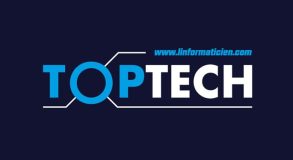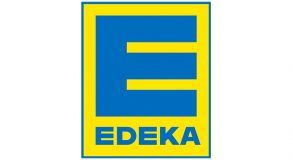Our national TLD, “.fr”, has been growing strongly for several years. It now has more than 3.7 million names and is rightly seen by VSEs and SMEs as an important tool for their digital transformation.
With reussir-en.fr (“Succeed with .fr”) and in partnership with all the registrars that distribute and configure the .fr domain and render it directly operational for end users, Afnic – in its public service role – goes well beyond just “managing and developing the .fr top level domain”. Afnic works to make the domain better known, to make it a pertinent and effective way of strengthening France’s digital sovereignty, as well as offering European users an informed, conscious choice and a credible, solidarity-based alternative to going through a platform.
Also, by way of reminder, Afnic donates 90% of the profit generated from its business as the .fr. registry to the Afnic Foundation for Digital Solidarity.
But how does this relate, you will ask, to the title of this blog and to abuse?
Well, like all human activity, the creation and management of domain names has advantages and added value as briefly mentioned above, but it also has its downside.
Or to put it another way:
all human activity produces waste. In the services that concern us, this residual pollution is called abuse, and one of Afnic’s missions is to combat this.
What does this abuse consist of?
As shown by the series of conferences and working sessions we held in 2020 on the subject of online abuse, these problems are of many different kinds and affect numerous and disparate actors in the digital ecosystem: hosters, access providers, publishers, registries, etc.
This abuse varies considerably in seriousness from one situation to another, ranging, for example, from the problems of eligibility of a domain name holder who had not realised he was not eligible for a .fr name because he lived outside the EU, through to much more serious abuse involving domain names leading to hateful content, child pornography or major fraud.
Faced with the diversity of these situations, the legislator long ago put in place a fairly comprehensive arsenal of laws dealing specifically with the Internet (the LCEN or Law for Confidence in the Digital Economy being the best example) and other texts, proposing regulation of the actors and defining new crimes, offences or contraventions (anti-terrorist laws, laws protecting cultural works, consumer protection laws, laws strengthening the security of essential infrastructure, laws regarding press freedom, and others).
As regards domain names, the basic and inescapable legislative reference is Article L.45 of the French Post and Electronic Communications Code (CPCE).
This Article is particularly important since it results from the Constitutional Council’s having declared the former legislative framework of domain names unconstitutional, and from numerous opinions of the Council of State on the same subject.
France is thus one of the few countries in the world to have endorsed the domain name as an instrument of freedom of expression and freedom of enterprise, while at the same time setting clear limits to its use.
Indeed, Article L.45 of the CPCE precisely describes the characterisation of violations of any contractual right (including intellectual property rights and personality rights), of rights guaranteed by law, or of the identity of national and regional public services.
It is therefore within this framework that Afnic takes action.
So what exactly do we do?
First of all, the law reminds us that:
This is the basis.
But in what cases is a domain name considered problematic?
To answer this question, the law specifies the circumstances in which Afnic can be called upon to arbitrate as part of an alternative dispute resolution procedure.
According to the provisions of Article L.45-6 of the aforesaid CPCE, “any person showing an interest in acting may request the competent registry to delete or transfer a domain name to him/her/it when the domain name falls within the cases provided in Article L. 45-2”.
And such a case applies to a domain name when the domain name is:
– Liable to disrupt public order or morality, or the rights guaranteed by the French Constitution or French law;
– Liable to infringe intellectual property rights or personal rights, unless the holder of the domain name can show legitimate interest and acts in good faith; or
– Identical or similar to the name of the French Republic, a regional or local authority or a grouping of such authorities or a national or local public institution or service, unless the holder can show a legitimate interest and acts in good faith.
To help us determine whether any of these cases applies, the legislator provides keys allowing each situation to be classified: how, for each disputed domain name, to determine a breach of the rights appealed to, bad faith and the lack of legitimate interest of the holder of the domain name.
So Afnic manages dispute resolution proceedings, but when disputes concern content that requires careful interpretation as to whether or not it breaches public order or morality, it is understandably very difficult to take the place of a court of law with jurisdiction in the matter.
What has to be borne in mind is that it is extremely rare for a domain name, with no link to associated content, to be unlawful per se. To think that all abuse can be explained by a domain name that was itself already unlawful would be like seeking to remove certain words from the dictionary on the basis that they might be put together to form an unlawful sentence. We can see immediately where this might lead…
And the legal framework we have just presented to you allows us precisely to avoid these outcomes. That is what differentiates Afnic, as registry for the .fr domain, from a private platform. Application of this legal framework is guaranteed not by general conditions of use that we apply and could alter to suit us as with a private law contract, but by the Law and by the Naming Policy of the .fr domain.
It is precisely within this framework that Afnic can act quickly if a natural person’s identity is stolen to register a domain name, or to verify a domain name holder’s contact details if they seem far-fetched.
The .fr domain: a space of trust and freedom.
Every day, Afnic fights staunchly against abuse, to limit its consequences which are always to the detriment of others, but also to preserve the space of trust that the .fr domain has always offered since its creation.
We do this while respecting fundamental freedoms and staying attentive in order to make sure people do not confuse the problems linked to website content with those relating to the domain names themselves. The domain name is an indispensable tool for online presence. By blocking or deleting it, it is possible to put an end to a breach. But the fact that it provides a technical solution to the fight against abuse does not mean that the abuse stems from within.
These distinctions are important for a proper understanding of their legal nature and in order to be more effective in the fight against online abuse.





